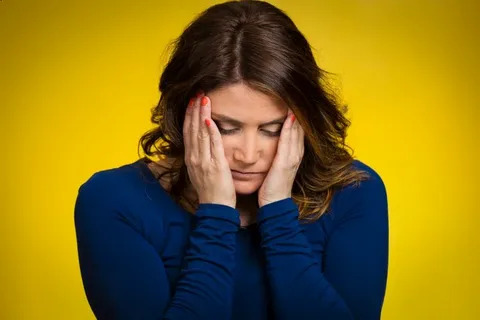Anxiety disorders, which impact millions of individuals across all age groups and backgrounds, are among the most common mental health problems in the world. Many people find relief with anxiety medication, even though therapy and lifestyle modifications can also be beneficial. This article delves into the science and art of anxiety medication, examining its types, mechanisms, advantages, and things to think about for patients who are considering treatment.
An Overview of the Complexity of Anxiety
A variety of conditions can cause anxiety, including panic disorder, social anxiety disorder, generalized anxiety disorder (GAD), and particular phobias. These illnesses have the potential to seriously hinder day-to-day functioning, which can cause distress, social isolation, and a reduction in life quality. Anxiety is a complicated and diverse disorder that frequently results from a mix of genetic predispositions, brain chemical imbalances, environmental influences, and life experiences.
The Function of Anti-Anxiety Drugs in Therapy
When treating anxiety disorders, medication is essential, particularly when symptoms are severe or have a substantial negative influence on an individual’s functioning. These drugs function by focusing on brain neurotransmitters that control mood, anxiety, and stress reactions, such as gamma-aminobutyric acid (GABA), serotonin, and norepinephrine.
Types of Medication for Anxiety
One of the most often given drugs for anxiety disorders is selective serotonin reuptake inhibitors, or SSRIs. They function by raising serotonin levels in the brain, which in turn helps to promote relaxation and lessen the feelings of anxiety. Prozac (fluoxetine), Zoloft (sertraline), and Lexapro (escitalopram) are a few SSRI examples.
Inhibitors of Serotonin-Norepinephrine Reuptake (SNRIs):
SNRIs, which target both serotonin and norepinephrine, improve mood stabilization and reduce anxiety. Examples of these medications are Effexor (venlafaxine) and Cymbalta (duloxetine).
Benzodiazepines:
These drugs, which include Valium (diazepam), Ativan (lorazepam), and Xanax (alprazolam), depress the central nervous system and quickly relieve acute anxiety. However, because of the possibility of dependence and withdrawal symptoms, they are typically recommended for brief periods of time.
Buspirone:
Buspirone acts by blocking serotonin receptors and is a non-benzodiazepine anxiolytic. It is frequently used to treat generalized anxiety disorder over the long term.
Beta-Blockers:
Although not specifically made for treating anxiety, beta-blockers such as propranolol can be useful in treating the symptoms of situational anxiety, especially those associated with public speaking or performance anxiety.
Advantages of Medications for Anxiety
Symptom Relief:
People who take anxiety medication are able to restore control and stability in their life by greatly reducing the frequency and intensity of their anxious symptoms.
Better Functioning:
Medications that reduce anxiety can help people perform better on a daily basis, be more productive, and participate in social, professional, and recreational activities more easily.
Complementary to Therapy
While people focus on cognitive and behavioral methods in therapy sessions, medication can help by addressing physiological aspects of anxiety.
Complications can be avoided by using medicine to effectively control anxiety. Complications include depression, substance abuse, and chronic health problems that are associated with persistent stress and worry.
Considering and Difficulties
Side Effects: Anxiety medicines, like any medications, can have mild to severe side effects. Nausea, vertigo, sleeplessness, weight fluctuations, and sexual dysfunction are common adverse effects.
Risk of Dependency:
When used excessively or over an extended period of time, benzodiazepines increase the risk of dependence and withdrawal symptoms. It’s critical to adhere to a doctor’s recommended regimen and keep a careful eye on usage.
Individual Variability:
Different people react differently to anxiety medications. What is effective for one individual might not be for another. It frequently takes time and continuous assessment to determine the appropriate drug and dosage.
Interaction with Other Substances:
Certain anxiety drugs may have negative interactions with alcohol, other drugs, or herbal supplements. It’s critical to let medical professionals know about all substances taken.
Long-Term Management:
Although medicine can offer considerable relief, a comprehensive strategy comprising counseling, lifestyle changes, stress reduction methods, and social support networks is frequently required for long-term anxiety management.
Getting Around on the Path to Mental Health
A thorough strategy taking into account each person’s needs, preferences, and circumstances is necessary to achieve mental well-being. Medication is a useful tool for many people with anxiety disorders, as it can help them recover and lead better lives. But it’s crucial to approach anxiety medication with knowledge, and to work cooperatively with medical professionals.
The Craft of Coping Mechanisms and Self-Care
Anxiety management requires not only medicine but also self-care routines and coping mechanisms. These could consist of:
Frequent Exercise:
Exercise boosts mood, lowers stress and anxiety, and produces endorphins.
Meditation and mindfulness: Mindfulness techniques, such deep breathing exercises and meditation, help people become more resilient to anxiety-inducing stimuli and more at ease.
Healthy Lifestyle
Eating a well-balanced diet, getting enough sleep, and abstaining from excessive alcohol and caffeine can all contribute to general wellbeing.
Social Connections:
Creating and maintaining a network of friends, family, or support groups can help to ease emotional pain and lessen feelings of loneliness.
Stress Management Techniques:
Resilience and coping skills can be improved by learning and using stress management techniques like time management, problem-solving, and setting boundaries.
In summary, adopting a holistic perspective
For many people, anxiety medication provides alleviation, stability, and enhanced functioning in the treatment of anxiety disorders. Medication must, therefore, be used in conjunction with a more comprehensive treatment strategy that includes counseling, self-care routines, and continuing assessment and modification. Despite the difficulties associated with anxiety, people can walk the route to mental well-being and lead fulfilling lives by fusing the art and science of anxiety medication with holistic solutions.
